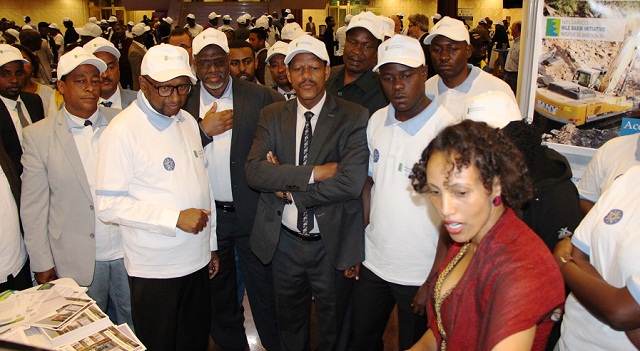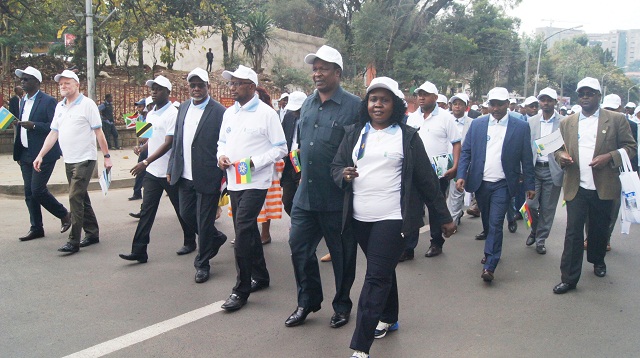
Addis Ababa, Ethiopia | NBI | Ethiopia’s President Dr. Mulatu Teshome has said that one of the common challenges within the Nile Basin is that the majority of its inhabitants live under extreme poverty.
Speaking during Thursday’s regional Nile Day 2018 celebrations at the UN Conference Centre in Addis Ababa, Ethiopia, Teshome noted that the upstream Nile Basin countries’ agricultural systems are of limited productivity, based on subsistence farming vulnerable to climate change effects and frequent famines.
He emphasised that the River Nile is the only natural resource that all Nile Basin countries are tapping into for socio-economic development.
“While the Nile is the longest river in the world, it is also one of the most water scarce,” he said.
He reiterated the need for Nile Basin countries to work together on how to use the water cooperatively, effectively and responsibly in order to overcome challenges in the basin.
Dr. Eng. Seleshi Bekele, Chairman of the Nile Council of Ministers (Nile-COM), who is also Ethiopia’s Minister of Water, Irrigation and Electricity, called on Egypt to consider resuming full participation in the Nile Basin Initiative (NBI).
“I encourage remaining NBI Member States to expedite the ratification of the Cooperative Framework Agreement so as to enable the formation of the Nile River Basin Commission,” he said.
The Executive Director of NBI Eng. Innocent Ntabana, noted that the institution has achieved a lot in its 19 years of existence. He cited the continued engagement among countries through the NBI platform, scientific tools developed and impartial knowledge generated as well as $6.5 billion-worth joint investment projects of regional significance prepared.
Participants concurred on the need to expand and embed Nile Cooperation within broader regional integration.
Nile Day 2018 was attended by at least 500 Nile Basin citizens and friends of the Nile, including Ministers of Water Affairs from Nile Basin Countries, senior government officials from Ethiopia, representatives of UN agencies and embassies of Nile Basin countries based in Addis Ababa. Others were Members of Parliament, media, youth, civil society, school children and researchers.
According to a statement from NBI, “The annual Nile Day event provides an opportunity to increase awareness of the importance of basin-wide Nile Cooperation in jointly taking good care of and utilizing the shared Nile Basin water and related resources for win-win benefits.”
“This is in addition to enhancing awareness about the consequences of non-cooperation as well as the challenges of Nile cooperation. On a lighter note, the day serves to expose participants to the rich and varied cultures, which exist within the Nile Basin.”

River Nile
Traversing about 6,695 kilometers, the Nile is one of world’s longest rivers, feeding millions and giving birth to entire civilizations. The river is a major source of water for the Nile Basin countries.
Water, energy and food are inextricably linked and are essential for human well-being, poverty reduction and sustainable development.
The close interrelationships amongst these resources therefore call for our balancing of the act of exploitation to ensure sustainability for our future generations, for we are, but only stewards of these resources.
Projections in the Nile Basin region indicate that demand for energy, food and freshwater, will increase significantly over the next decades under the pressure of population growth and mobility, economic development, regional trade, urbanization and climate change among others. Agriculture in the Nile Basin consumes more water than any other sector.
At the same time, water is needed for energy generation and transmission, particularly for hydro power, which is the preferred source of energy for various reasons; key among them the low production cost, which makes power affordable to the urban and rural poor. On the other hand, energy is needed to produce, transport, treat and distribute water; the more energy we need, the more water we use, and vice versa.
 The Independent Uganda: You get the Truth we Pay the Price
The Independent Uganda: You get the Truth we Pay the Price





